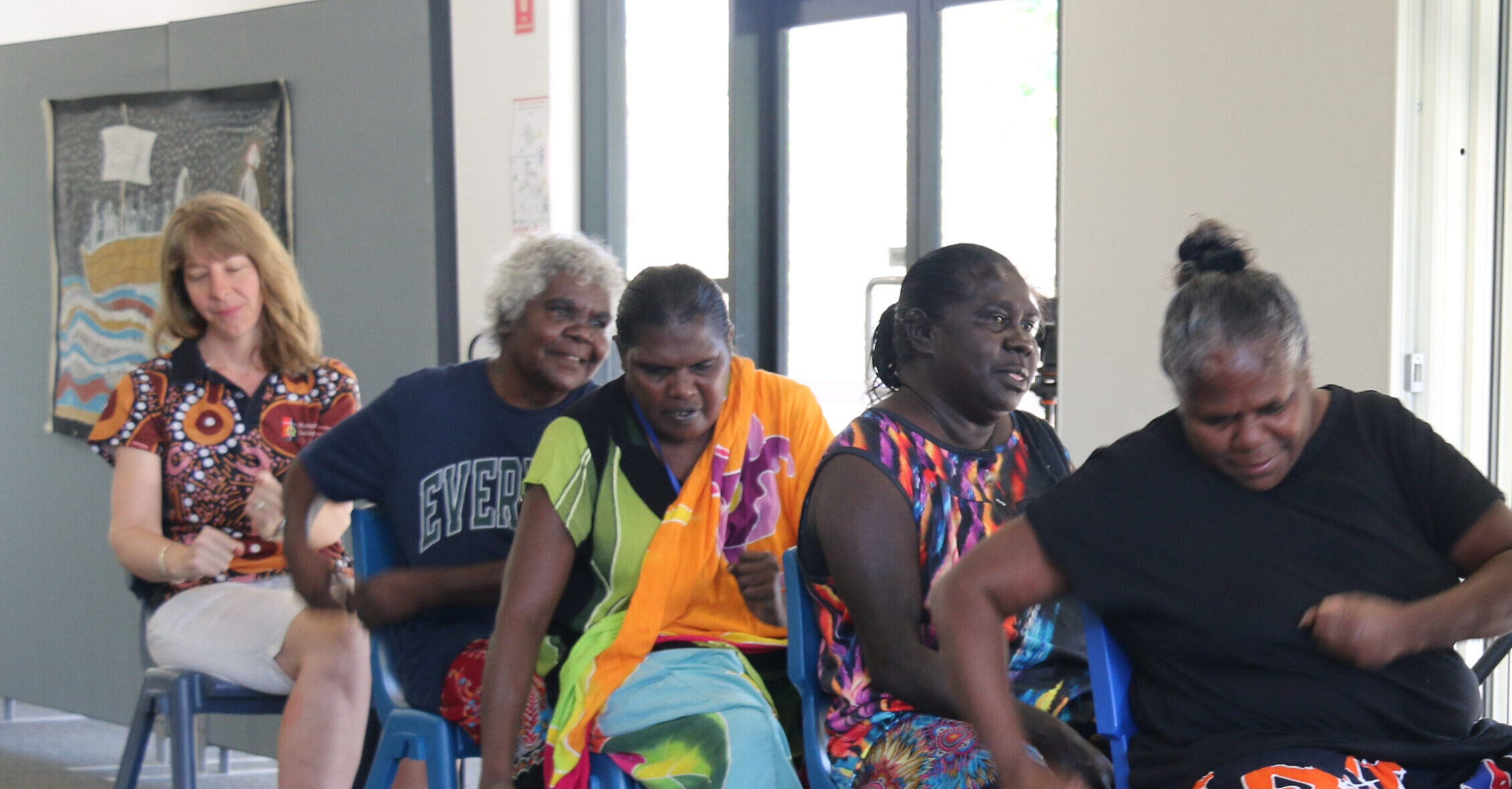Co-teaching at Nungalinya
Geoff and Hannah Harper have served in remote medical and Indigenous language work in the Northern Territory for the past 16 years. Hannah writes here about recent experiences at the training facility for Indigenous Christians, Nungalinya College.
Cross-cultural teaching and learning
The class had worked hard for several weeks as they developed translations with meaning, accuracy and naturalness. Role plays, examples, silly stories, drafts, Old Testament stories, New Testament stories, oral translating—it was exhilarating but exhausting!
One day, my Indigenous co-teacher addressed the class as usual in Djambarrpuyŋu, the common language of the class.
“We are doing this properly because we don’t want people later to hear and read God’s Word in your languages and say ‘This doesn’t make sense! Why didn’t Rriwit and Gutjan (Hannah) teach those translators properly?’”
I sat to one side of where Rriwit was speaking—stunned to hear the high level of responsibility she was placing on our team teaching! Maybe she was using some hyperbole to make her point, but I have seen other evidence that the performance of learners reflects on those who teach.
I felt the weight of this as a cross-cultural teacher and perpetual learner myself. I quietly asked God (again) to help us all to do our best work for his glory in the classroom and beyond.
Learning from my co-teachers
For the last three years, I have taught a Certificate II in Indigenous Translating alongside Indigenous teachers. CMS and other agencies supported Nungalinya College to write and deliver this new Certificate, and now two cohorts are on track to graduate this year.
I have learned so much from working with Indigenous co-teachers, Alanga, Rriwit and Djawut. Alanga is an experienced teacher from the Catholic College in Wadeye. Rriwit and Djawut are experienced Bible Translators who work with several Yolŋu languages. I appreciate their sensitivity to how people are going when they first arrive at Nungalinya College, and throughout each day in class.
They are eager for students to join the translation trainingat Nungalinya, in the hope that they will join Bible translation projects.
Learning from each other
Every year, Alanga, Rriwit and Djawut have had more input to the preparation and delivery of the course.
Our challenge is to know what we want the class to learn and practice, and to be ready with resources and assessment tools. Then, I deliberately create space for our teaching team to pick the path, often in consultation with the student group. Activities, case studies and student presentations are often spontaneous, and we have a lot of fun with languages and stories. We learn the most wonderful things from listening to God’s Word and listening to each other.
As the weeks of each intensive study block pass, students become more confident to raise the hard questions about languages, cultures and the Bible.
When things are going well, my Indigenous co-teacher and the class will approach me more as a resource than a leader. It is amazing to see how the classroom comes alive with instruction in first languages.
I am excited to consider how these senior Indigenous teachers could inspire a new generation of Christians to lead in home, school, church or Nungalinya College. I hope and pray that these lively Christians will keep growing and working through the Bible so that many more people would know God in his Word.
Image: Hannah with members of the class.
PRAY
![]()
Pray with Hannah and Geoff for Nungalinya College, the growing staff and the four cohorts undertaking this Certificate in 2025.












































































































